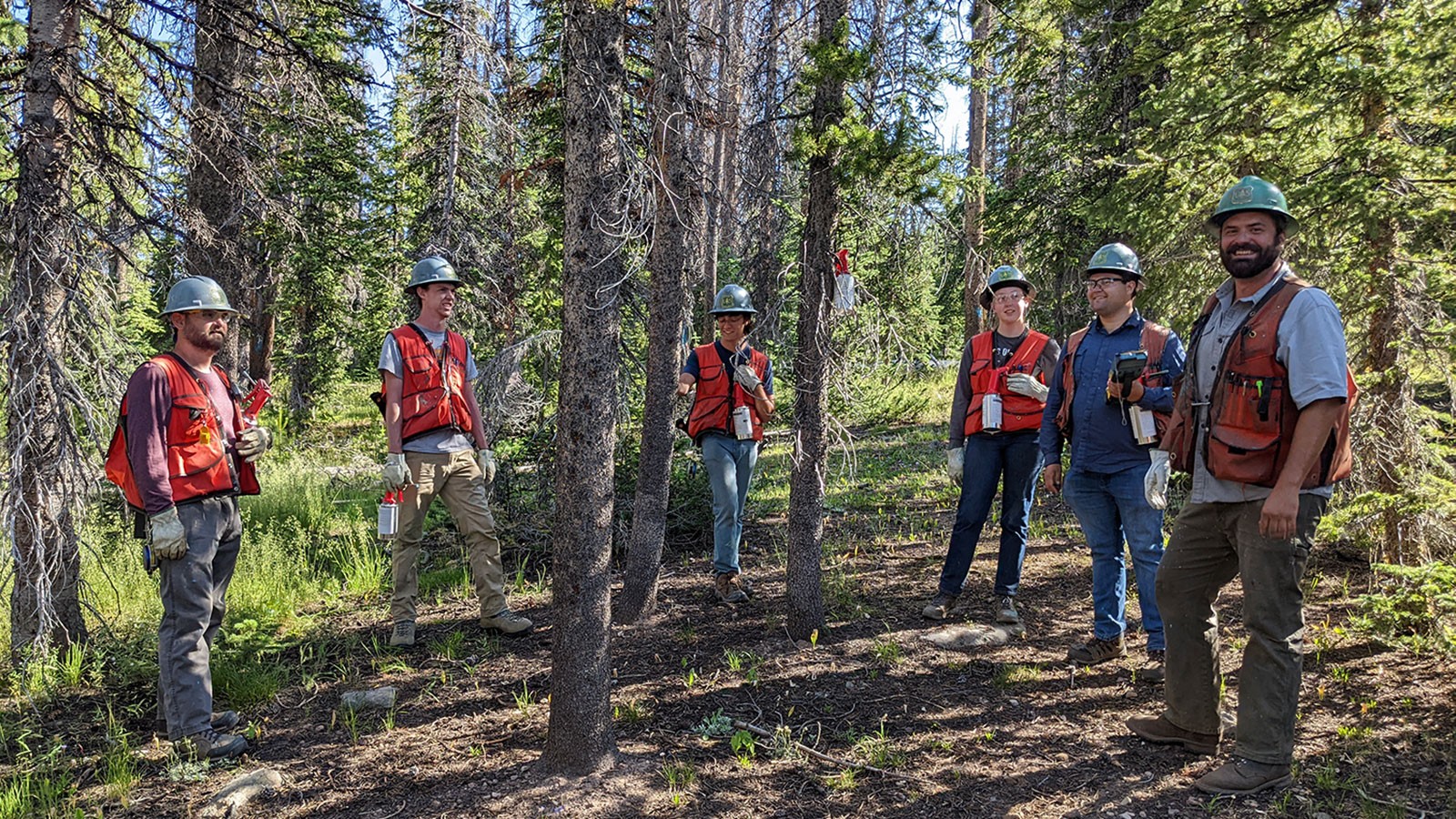Branching Out: Forestry Club Hosts National Leadership at Annual Meeting
By Lael Gilbert |
USU forestry students have the chance to network and hear from Terry Baker, chief executive of the national Society of American Foresters organization in a keynote address on reforestation. (Photo Credit: USU/Lael Gilbert)
After a two-year hiatus, the USU student section of the Society of American Foresters is getting back to its live roots. Participants from across the four-state region will have the chance to hear in person from Terry Baker, chief executive of the Society of American Foresters as keynote speaker during the group’s annual gathering on the USU campus April 21-22.
“It’s an honor to have Terry Baker as our keynote speaker this year,” said Kirk Owens, president of the USU Forestry Club and organizer of the event. “His topic and expertise is reforestation, which is a big part of the future in this field. Having someone of his caliber providing insight is a huge benefit.”
Baker has a career in USDA Forest Service leadership in Florida, Oregon, Nebraska, Arizona and Colorado, and has a Master of Forestry from Yale University. The theme of reforestation — the practice of reclaiming and managing impacted landscapes — is a significant one in an era when forested lands face unprecedented challenges from natural and human forces.
Registration to the meeting is now available, with the cost for students for the two-day event only $10 and professionals $40.
Not only will this gathering be a unique opportunity for networking and learning from professionals in the field, but students can also expect fairly brisk recruiting efforts at these types of gatherings, according to Justin DeRose, forester and professor in Wildland Resources. Opportunities for careers in forestry in the Western U.S. have expanded such that managers are feeling the pinch in the hunt for new employees.
“I’ve never seen a surge in available forestry jobs like the one we are seeing right now,” he said. “There are a slew of not only seasonal jobs available, but positions that lead to long-term careers. Managers seem to take the opportunity to recruit whenever they get access to students these days.”
This particular flux in available forestry positions is largely a result of the recently passed national infrastructure plan — specifically the REPLANT Act, according to DeRose. The new legislation was designed to aid in reforestation efforts and is forecast to create 49,000 jobs over the next 10 years to address the growing backlog of national land in need of reforestation after wildfire, beetle infestation and other large-scale disturbance.
The QCNR is also seeing a multi-year uptick in forestry majors. Word is getting out about the high-quality faculty and classes offered in the forestry major in the Quinney College of Natural Resources, DeRose said.
The Forestry Club is active year-round on campus, providing support and opportunities for students from any major interested in knowing more about forestry practices. Through a variety of activities they offer leadership training, events and social opportunities. The group manages the annual Holiday Tree Sale and hosts the annual QCNR Logger’s Breakfast.
WRITER
Lael Gilbert
Public Relations Specialist
Quinney College of Natural Resources
435-797-8455
lael.gilbert@usu.edu
TOPICS
Environment 263stories Land Management 123stories Career 60storiesComments and questions regarding this article may be directed to the contact person listed on this page.







